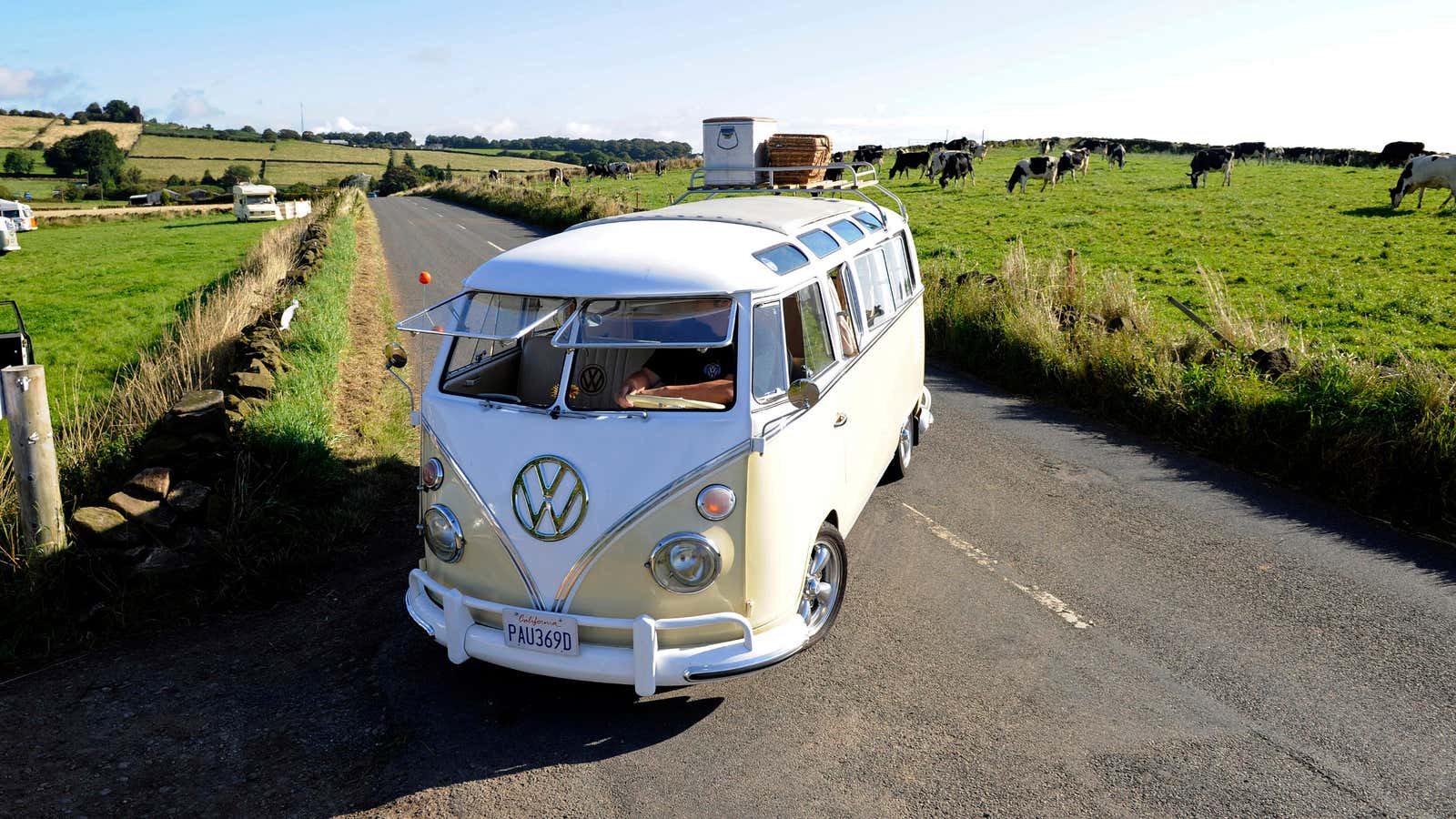This item has been corrected.
Some 60 years ago, the first VW Transporters—or camper vans as they’re better known—were first assembled in São Paulo, Brazil. This December, the country will build the world’s very last one.
Germany shuttered its production of the minibus back in 1979, and Mexico followed suit in 1994. Since, Brazil has been the sole producer of the VW camper van. Volkswagen is discontinuing production of the iconic vehicle at the end of the year because it doesn’t comply with Brazil’s newest safety laws. Beginning in 2014, new cars will be required to have anti-lock braking systems (ABS) and airbags, features that aren’t compatible with the camper van.
The discontinuation of the VW minibus, the longest-produced model in automotive history, is sure to disappoint camper van enthusiasts around the globe, many of whom organize festivals and gatherings to commemorate its creation. But it may ruffle the feathers of Brazilians even more, many of whom have long relied on the bus’s reasonable price and simple design for all kinds of needs beyond just getting around: as mobile kiosks, ambulances and even hearses, as Germany’s Der Spiegel reports. In Brazil, the minibus, which is called the “A Kombi,” costs a mere 47,000 real ($20,450). (By comparison, a Mercedes Sprinter—a similar cargo van—costs more than $36,000.)
Volkswagen will roll out a final, commemorative edition series of the camper van, which will include features and design quirks meant to celebrate the myriad versions that Brazil has produced over time. The model, spacious enough for nine people, will be produced in one of its most classic color combinations—Atlanta Blue and white—and carry traditional Kombi design elements, including a speedometer at the center of the dashboard. Those antiquated features will be paired with modern-day technologies like an MP3 sound system with auxiliary and USB ports, according to the Telegraph. Only 600 limited edition vehicles (accompanied by a special certificate of authenticity) will be manufactured, for a going price of roughly 85,000 real ($37,000).
In total, 3.9 million VW camper vans have been built worldwide, 1.5 million of which were assembled in Brazil. This year alone, some 13,000 buses have been built in Brazil, most of which have been assembled by hand. Volkswagen has stuck with the car’s classic integrity, but on occasion it has made minor updates and design changes, including a replacement of its old flip-out turn signals, which proved hazardous for bypassing cars and pedestrians.
The camper van’s last hurrah will up the competition for the storied vehicles and their parts in the used market. No doubt the price of those 600 limited editions will climb, too.
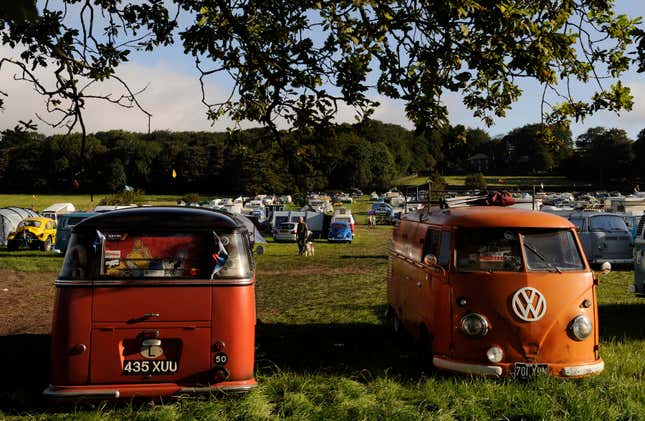
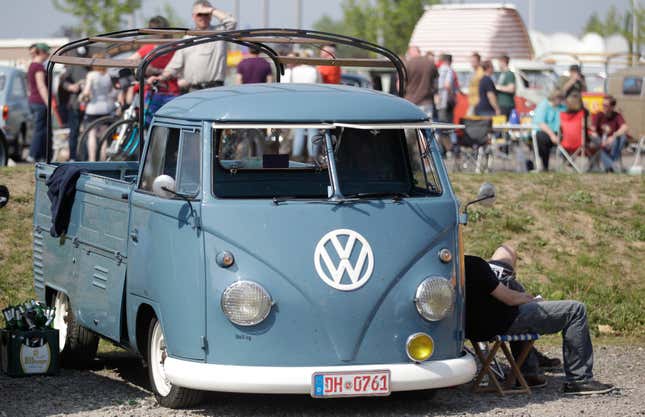
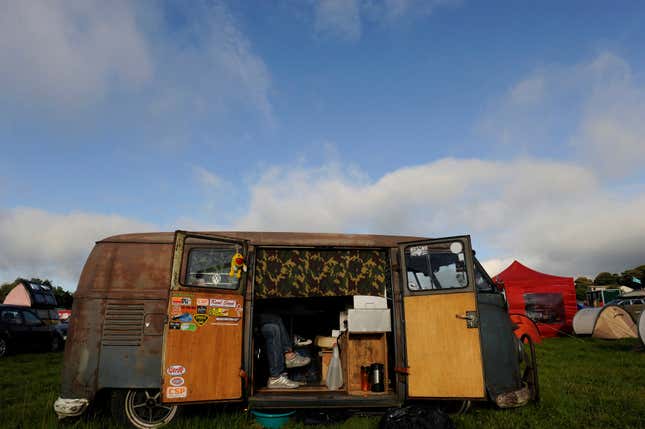
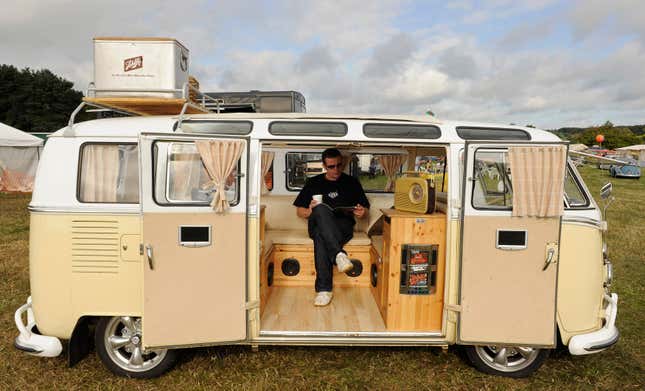
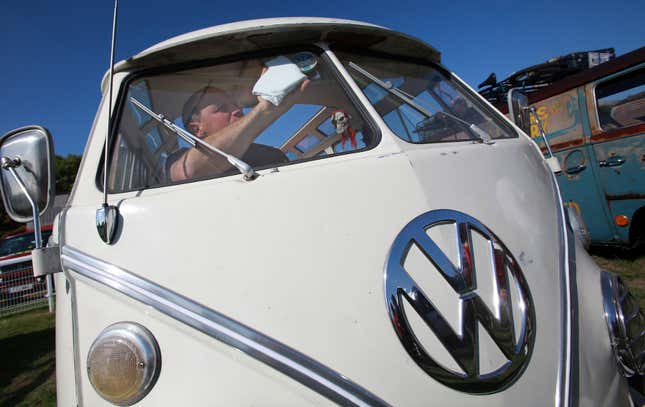
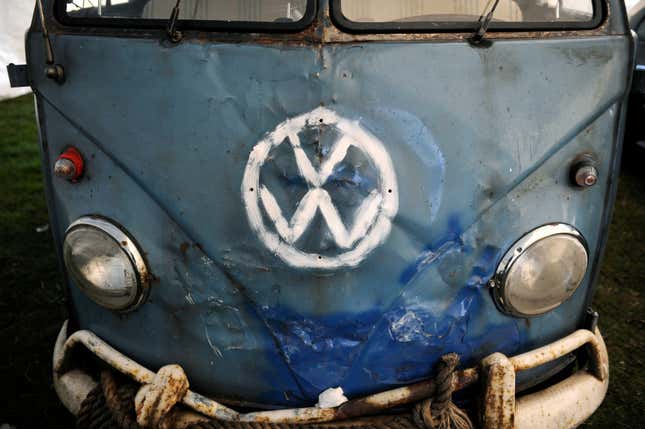
Correction (September 9 3:05 p.m. ET): An earlier version of this article incorrectly stated that after Germany stopped producing the VW camper van in 1979, Brazil became the sole producer. Mexico, however, produced the VW camper van from 1970 to 1994, only after which Brazil became the automobile’s sole producer.
